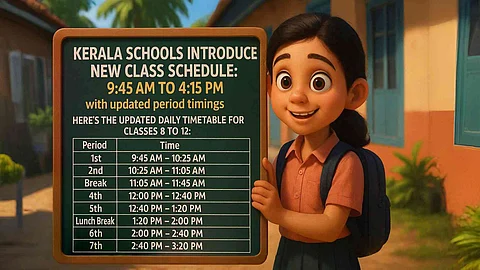

Kerala General Education Minister V. Sivankutty has reaffirmed that the state government will not reconsider its decision to revise school timings. Speaking on Tuesday, the minister clarified that the change applies only to students in classes 8 to 10, where the number attending religious studies is minimal.
Sivankutty stressed that safeguarding students’ right to education is the government’s foremost priority.“We are not opposed to religious education, but academics must come first,” he said. The minister also noted that he had spoken with Samastha Kerala Jem-Iyyathul Ulama president Syed Mohammed Jifri Muthukoya Thangal to address misconceptions. “There was no discussion about changing the school timings, only about clarifying misunderstandings. Someone seems to have misled them,” he explained.
Citing examples from Kerala and abroad, Sivankutty pointed out that many unaided schools in Malappuram and Kozhikode already start at 9 a.m. Likewise, the 10 Kerala-run schools in the Gulf nations also commence classes at 9 a.m.He reiterated that the government is committed to the welfare of all 47 lakh students in the state and is open to discussions, but only regarding practical concerns—not policy reversal.
On the recent controversy over padapooja, the minister made it clear that such practices—where students wash the feet of teachers or elders—will not be allowed in schools. The education department has instructed the director of general education to investigate such incidents. Sivankutty criticized these acts as outdated customs unsuited for a modern education system and alleged that some schools, under RSS influence, were justifying the practice. However, he warned that such institutions would face legal challenges if they continue these rituals.
Sivankutty also stated that community organisations should focus on religious or social matters specific to them, while education policy and implementation rest solely with the democratically elected government. He firmly asserted that religion and education must remain separate and that no religious practices would be permitted to interfere with academic environments.
